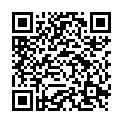|
|
|
| Module code: E1984 |
|
|
2V+2P (4 hours per week) |
|
6 |
| Semester: according to optional course list |
| Mandatory course: no |
Language of instruction:
German |
Assessment:
Composition and written exam
[updated 26.02.2018]
|
E1984 (P200-0029) Electrical Engineering, Master, ASPO 01.10.2013
, optional course, technical
KI851 Computer Science and Communication Systems, Master, ASPO 01.04.2016
, semester 2, optional course, telecommunications-specific
KIM-ATEC (P200-0029, P200-0030) Computer Science and Communication Systems, Master, ASPO 01.10.2017
, semester 1, optional course, telecommunications-specific
PIM-WI74 Applied Informatics, Master, ASPO 01.10.2011
, semester 2, optional course, not informatics specific
PIM-ATEC (P200-0029) Applied Informatics, Master, ASPO 01.10.2017
, semester 1, optional course, not informatics specific
PIM-ATEC (P200-0029) Applied Informatics, Master, SO 01.10.2026
, semester 1, optional course, not informatics specific
|
60 class hours (= 45 clock hours) over a 15-week period.
The total student study time is 180 hours (equivalent to 6 ECTS credits).
There are therefore 135 hours available for class preparation and follow-up work and exam preparation.
|
Recommended prerequisites (modules):
None.
|
Recommended as prerequisite for:
|
Module coordinator:
Prof. Dr. Horst Wieker |
Lecturer: Prof. Dr. Horst Wieker
[updated 11.10.2019]
|
Learning outcomes:
Students will be able to name the advantages and disadvantages of the most common bus systems, as well as their various fields of application. They will be able to encode/decode simple sensor and actuator information on the CAN bus and understand and adapt predefined addressing schemes. When problems occur, students will be able to systematically search for errors. In addition, students will be able to list the data typically generated in modern vehicles and the connections between this data and assistance systems.
They will be capable of demonstrating the basic motivation behind Cooperative Intelligent Transports Systems (car-2-car). Students will be able to reconstruct basic standard use cases and, based on given scenarios, independently determine how messages must to be composed in order to implement the applications. Students will be capable of solving routing problems by calculating the best propagation path.
[updated 26.02.2018]
|
Module content:
* Car-2-Car and GeoNetworking (theory)
* CAN Bus in detail (theory)
* CAN Bus in detail (practice)
* FlexRay Bus in detail (practice)
* Car-2-Car and GeoNetworking (practice)
- Wrong-way driver warning
- Traffic light assistant
- Intersection assistant
- Emergency vehicle warning system
* Communication-based assistance systems
[updated 26.02.2018]
|
Recommended or required reading:
[still undocumented]
|


